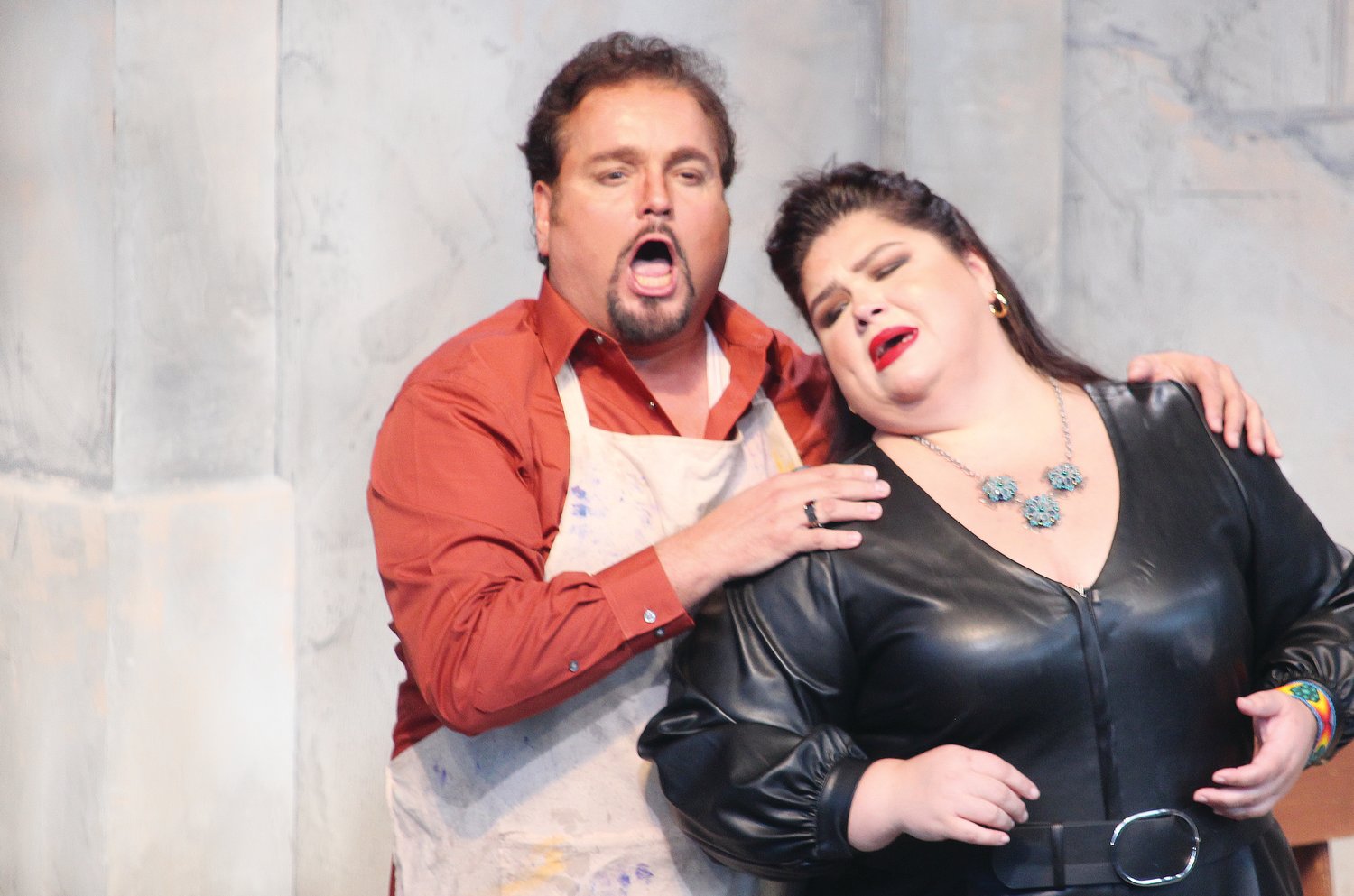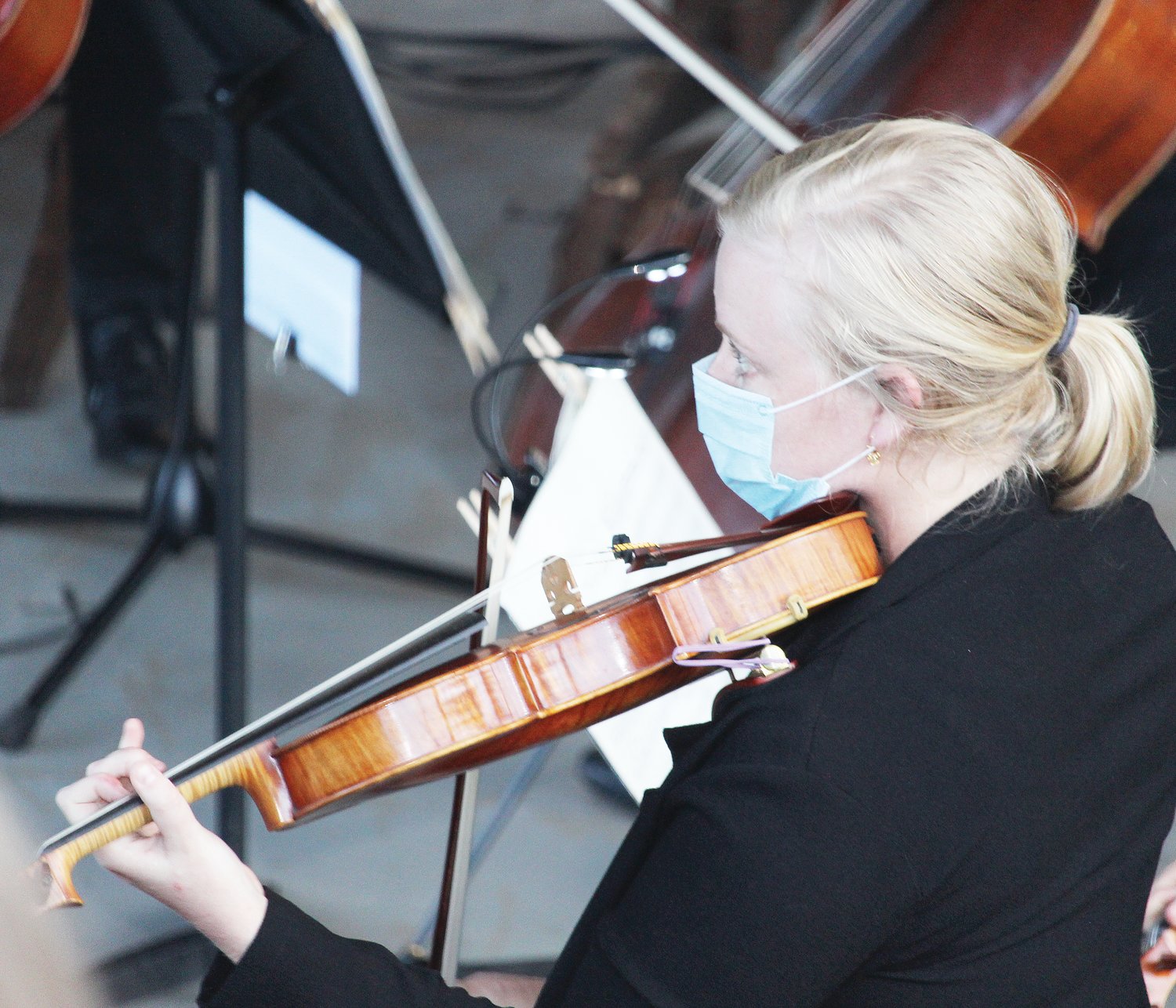Support the Timberjay by making a donation.
Annual music series adjusts to pandemic
CHISHOLM - There were some mosquitos, a rogue red squirrel that scampered all the way across row eight during the first act, and intermission views of the comet from the hillside to the north. The …
This item is available in full to subscribers.
Attention subscribers
To continue reading, you will need to either log in to your subscriber account, or purchase a new subscription.
If you are a current print subscriber, you can set up a free website account and connect your subscription to it by clicking here.
If you are a digital subscriber with an active, online-only subscription then you already have an account here. Just reset your password if you've not yet logged in to your account on this new site.
Otherwise, click here to view your options for subscribing.
Please log in to continue |
Annual music series adjusts to pandemic
CHISHOLM - There were some mosquitos, a rogue red squirrel that scampered all the way across row eight during the first act, and intermission views of the comet from the hillside to the north.
The orchestra players were evenly spaced, wearing masks if they didn’t need to blow into their instrument, and separated with plexiglass screens. The chorus members, who had pre-recorded their pieces prior to the show in small groups, wore masks on stage. But the principals, who had been quarantining in place with each other and wearing masks for the first few weeks of rehearsals, were in fine form on stage, with voices so strong they didn’t need the special sound system that had been rented to amplify the singers into the back rows of the outdoor seats.
This wasn’t your traditional venue for opera, but these are not traditional times.
“This is the first opera that has been produced since the March shutdown,” said Northern Lights Music Festival Artistic Director and Founder Veda Zuponcic. “It has garnered so much international attention.”
The amphitheater at the Minnesota Discovery Center (MDC) in Chisholm had been suggested as a musical venue for the festival before, but Zuponcic said they had always depended on the auditoriums at area schools.
“I had always steered away from it,” she said. “I was worried about the mosquitos, the cold, and the rain.”
But when local schools all closed to the public, Zuponcic needed some options if the planned performances were to go on.
After a quick tour, she realized the stage could work, there was adequate protection from any rain, and with social distancing guidelines followed, the venue would hold up to 250 audience members.
“There were a lot of changes needed though,” she said. “More money was spent on the sound system and lighting.”
Rehearsals began indoors at Mesabi East. The school was able to host rehearsals, but not a public performance. But once they started working at MDC, they realized there was one other big problem – the sunset.
“The sun glare was so strong right at 8 p.m.,” she said. “The conductor said we couldn’t do it.”
The start time of the opera was changed from 7 p.m. to 8 p.m., and Northern Lights board member Ryan Bajan figured out a way to string a large tarp across the back of the amphitheater, blocking most of the glare.
Tosca in the time of COVID-19
The cast was international, but the audience was mostly local.
“Attendance was a little less than ideal,” said Zuponcic, noting that in past years, many had driven from as far as Duluth to an afternoon performance, but weren’t willing to come to an evening show with such a long drive home.
The festival had sent out an online survey, trying to see what options previous audience members were comfortable with. The top choice, she said, was an open-air setting.
“Most of the audience at the two shows came from within 30 miles,” she said. And on the bright side, she said they saw more younger people in the audience than in past years.
The opera was also livestreamed to over 125 people from around the world, including the brother of the opera’s stage director Chia Patino. He was able to watch the show from his home in Ecuador.
Chia Patino recently moved from Ecuador to Texas, teaching and producing opera at the University of Texas, Austin.
“Right now, the world is kind of closed,” Patino said. “It would have been impossible for me to get here if I was living in Ecuador.”
Patino got a real taste of the northwoods, spending a couple of weeks at a cabin outside of Biwabik, and then a week at a cabin on Lake Vermilion.
“I am completely in love with the nature up here,” Patino said. “And the stars are so impressive.” The bugs, on the other hand, were not a highlight.
Patino said there were some challenges with moving the opera outdoors, and it required a lot of flexibility from the singers and the crew.
“We needed to keep it dramatic, and keep the story clear, while still maintaining social distancing.”
There were a lot of behind-the-scene changes that the audience wouldn’t notice, Patino said.
“There was no crossing on stage of the characters,” she said. “Singers never went in and out of the same door together, and singers never shared the same prop. There was one prop for each character that would be switched behind the stage.”
A dance scene was reworked to keep the singers at a safe distance. Rehearsals were done wearing masks, but during the performance, all the singers except the chorus sang without masks.
“The flight back home will be the most dangerous thing I’ve done the last three weeks,” she said.
Social distancing was also a challenge for the orchestra musicians, who are used to being seated close together.
In addition, the musicians stayed as isolated as possible during the three weeks up north.
“This was not the most social time,” she said.
“It was hard to do,” said Zuponcic, “but we can do it.”
The opera provided musicians and singers with some of their only paid work since March.
“One after another, “ Zuponcic said, “all of their contracts were canceled, all the way into the fall.”
Future plans
The music festival, which includes a camp for young musicians, was much smaller this year since the students needed to be housed in single rooms.
Luckily for the festival, this year’s group of students was incredibly talented, and every one of them was able to be part of the festival performances.
Zuponcic said plans for next summer’s festival will depend on what level of grant funding they receive. The festival receives major funding from Explore Minnesota Tourism and the Minnesota State Arts Board. Zuponcic said there might be some changes to these grant programs, to focus on smaller events, which would impact the festival.
“Everything we do depends on grant money,” she said.
Zuponcic said the festival lost out on some private foundations that shut down spending this spring.
But Zuponcic is confident they will figure out a way to bring music to northern Minnesota in the years to come.
“I think we may be in a very similar situation next year also,” she said. “But we will figure out a way to make it work.”
'The Medium' at Ely
A second shorter opera will be performed at Ely’s State Theater on July 26 at 4 p.m. and July 27 at 7 p.m. A maximum of 70 tickets are available for each show, but tickets, as of press time, were still available.
“This opera was supposed to be performed at Mesabi East,” Zuponcic said.
The Medium is one of the most popular American operas. It premiered in 1947, and later ran on Broadway. Metropolitan Opera Diva Barbara Dever is playing the lead, with students from the festival’s Opera Apprentice Program taking other roles. The opera tells the story of Baba, a fortune-teller, who begins to believe in her phantoms. This is a short opera and runs about 50 minutes.
Tickets are available online at https://www.northernlightsmusic.org/.









